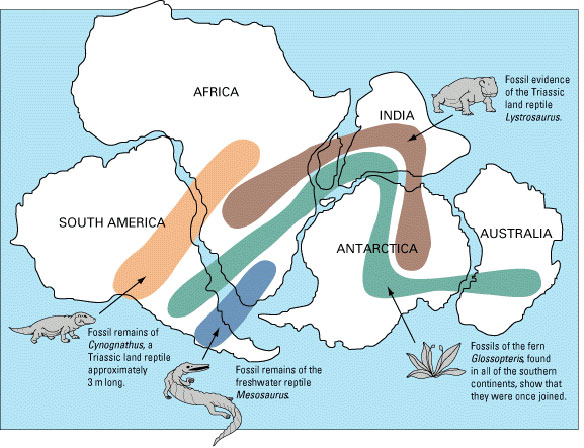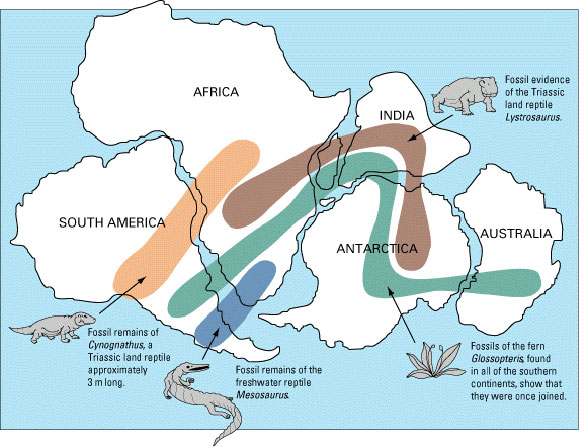
Continental drift fossil evidence. As noted by Snider-Pellegrini and Alfred Wegener, the locations of certain fossil plants and animals on present-day, widely separated continents would form definite patterns (shown by the bands of colors), if the continents are rejoined. Captions and image source: United States Geological Survey (USGS)
Excerpts;
Exactly 100 years ago, on 6 January 1912, Alfred Wegener presented his theory of continental drift to the public for the first time.
At a meeting of the Geological Association in Frankfurt’s Senckenberg Museum, he revealed his thoughts on the supercontinent Pangaea, which broke apart and whose individual parts now drift across Earth as today’s continents.
“The concept revolutionized the earth sciences and reviled the man who dared to propose it, German meteorological pioneer and polar explorer Alfred Wegener. Science historians compare his story with the tribulations of Galileo…” (Earth Observatory / NASA)
In 1915, he published his book “The Origin of Continents and Oceans.”
Its third edition in 1922 was translated into the languages of the world and today is considered the foundation stone of plate tectonics…









